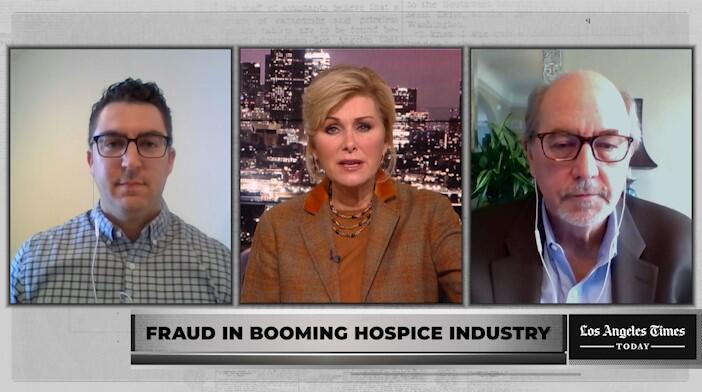The world of hospice care is built on trust, Zola hospice fraud compassion, and service to those nearing the end of life. However, recent allegations surrounding Zola hospice fraud have shaken the industry and raised concerns among patients, families, and healthcare professionals. In this article, we’ll dive into the details of the controversy, uncover its implications, and explore how the hospice care system can improve to prevent similar issues in the future.
What Is Zola Hospice Fraud?

Zola hospice fraud refers to allegations of fraudulent practices within the hospice care services provided by Zola, a name associated with compassionate care. Fraud in this context typically involves unethical practices like inflating bills, misrepresenting patient conditions, or providing subpar care while collecting government funds or insurance reimbursements.
Common Types of Hospice Fraud
Hospice fraud, including cases like Zola hospice fraud, often takes the form of:
- Overbilling: Charging for services never rendered or inflating the costs of care.
- Patient Misclassification: Enrolling patients who don’t qualify for hospice care or exaggerating their condition.
- Unnecessary Services: Providing treatments or medications that aren’t medically necessary.
- Neglect: Failing to deliver promised care while still billing for it.
How Did Zola Hospice Fraud Come to Light?
The allegations of Zola hospice fraud emerged through investigations and whistleblower reports, often key tools in exposing fraud in healthcare.
The Role of Whistleblowers
Whistleblowers—typically insiders like employees or contractors—play a critical role in uncovering fraud. In this case, individuals raised concerns about discrepancies in billing, patient care, and documentation.
Government Investigations
Federal agencies, such as the Office of the Inspector General (OIG) and the Department of Justice (DOJ), often step in when Medicare or Medicaid funds are involved. They examine billing records, interview witnesses, and assess compliance with healthcare regulations.
Impacts of Zola Hospice Fraud on Patients and Families
Fraud in hospice care doesn’t just affect finances—it can deeply impact the quality of care that patients and their families receive.
Erosion of Trust
Families rely on hospices to provide dignified, end-of-life care. Allegations like Zola hospice fraud undermine confidence in the system.
Substandard Care
In cases of fraud, patients may receive inadequate or inappropriate care, which can exacerbate their suffering during already difficult times.
Financial Consequences
Fraudulent billing practices can lead to higher out-of-pocket costs for families and increased financial strain on government programs like Medicare.
Preventing Hospice Fraud
While cases like Zola hospice fraud highlight problems, they also offer an opportunity to strengthen oversight and improve practices within the hospice care industry.
Enhancing Oversight
Government agencies and accrediting bodies must implement robust monitoring systems to detect fraud early.
- Regular Audits: Random and scheduled audits help identify irregularities.
- Clear Reporting Channels: Providing safe and anonymous ways for whistleblowers to report concerns is crucial.
Patient Advocacy
Educating patients and families about their rights and what to expect from hospice care can help them recognize and report red flags.
- Review billing statements for unexpected charges.
- Ask for detailed care plans and verify the services provided.
Strengthening Ethics Training
Hospice providers should invest in comprehensive ethics training for employees to prevent misconduct and emphasize compassionate care.
Legal Framework to Address Hospice Fraud
Fraudulent practices like those alleged in Zola Hospice fraud are addressed through strict laws and regulations.
Law/RegulationPurpose
False Claims Act Prevents billing for services not provided or unnecessary treatments.
Anti-Kickback Statute Prohibits financial incentives for patient referrals.
Stark Law Restricts referrals when there’s a financial relationship involved.
HIPAA Protects patient information and ensures accountability in record-keeping.
These regulations ensure that offenders face consequences while safeguarding patients and taxpayers.
How Families Can Protect Themselves
Families can take proactive steps to avoid becoming victims of hospice fraud.
Do Your Homework
Research hospice providers thoroughly before choosing one. Look for accreditations, reviews, and compliance history.
Monitor Services
- Keep track of what care your loved one is receiving.
- Cross-check care plans with billing statements.
Speak Up
If something feels off, don’t hesitate to ask questions. If you suspect fraud, report it to the relevant authorities.
Signs of Fraud in Hospice Care
Recognizing the warning signs of fraud can make all the difference. Be vigilant for:
- Unexpected charges on billing statements.
- Services or medications that don’t match the care plan.
- Lack of transparency in documentation.
- Pressure to enroll in hospice care without clear eligibility.
The Path Forward: Learning from Zola Hospice Fraud
The allegations of Zola hospice fraud serve as a wake-up call for the entire industry. Moving forward, the focus must be on rebuilding trust and ensuring ethical practices.
Restoring Trust
Providers can regain trust by being transparent, admitting mistakes where necessary, and demonstrating a commitment to high-quality care.
Innovation in Oversight
Leveraging technology like AI can help identify irregularities in billing or care delivery, reducing the likelihood of fraud.
Community Involvement
By fostering a culture of accountability and community engagement, hospice care providers can create an environment where fraud has no place.
Conclusion
The allegations surrounding Zola Hospice fraud may highlight challenges, but they also pave the way for change. By improving oversight, empowering families, and holding providers accountable, the hospice industry can ensure that dignity and compassion remain at the heart of end-of-life care.
Fraud has no place in healthcare, and by working together—patients, families, providers, and regulators—we can build a more trustworthy and ethical system. In the end, it’s about ensuring that every individual receives the care they deserve during life’s most vulnerable moments.




